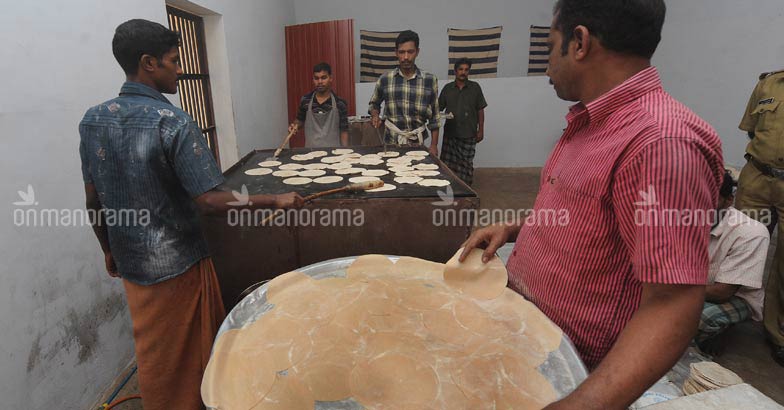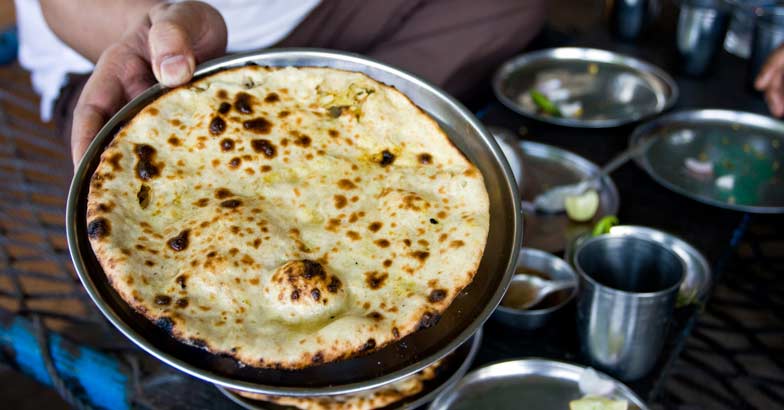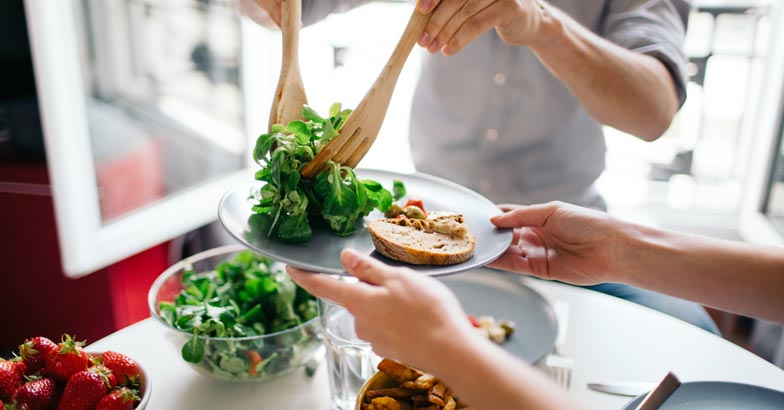'What is cooking' behind the bars: a peep into in-house jail kitchens

Mail This Article
These days, there’s a lot cooking 'behind the bars'. Well, literally! With quite a few greater mortals and their alleged henchmen tucked away in jails, the jail platter has garnered a lot of interest.
World over, there has been a definite change in the quality of food served to those behind the bars. The kitchens inside the jails are definitely no longer the sick and sordid stale food counters. Here’s a peep into some in-house jail kitchens.
Jail-special mutton
Interestingly, Kerala jails appear to be serving a balanced diet to their inmates and that too in quantities specified by dietitians. Meticulous care and precision is exercised in deciding the diet, weighing each item in proportions appropriate to respective health standards.
For example, while making dosa or idli, it is mandatory for each person to get 100 gm of rice and 40 gm of urad dal. This will make four idlis. How about tea? Just 30 ml in one serve.

As for chappathis, each inmate has to get 200 gm of wheat, which converts into four chappathis. Breakfast menu is fixed- it is either dosa or idli on one day and fluffy chappathis with Bengal dal; or upma with plantain on alternate days.
Avial is a daily must for lunch. So is puliserry. While it’s sambar on Tuesdays and Thursdays, it’s a mouth-watering theeyal treat (ground coconut curry) on Sundays. If fish fry is on the menu, the fresh fish has to weigh 140 gm for each inmate. No more, no less! When it’s fried, it shrinks to 100 gm.
As for the 'jail-special' mutton curry, each inmate is entitled to 100 gm. Many a jailbird would vouch for the superior flavor of mutton curry, courtesy; Kerala jails, where the inmates themselves prepare the food under the supervision of the official cook.
Read more: Chapati-mutton curry, rice-aviyal & theeyal: Kerala’s jail inmates relish healthy food
A North Indian dhabha in Tihar
Tihar is one of the world's largest jails- it also houses one of the biggest kitchens- feeding 15,000 people everyday. Chappathi, upma, puri, boiled eggs and banana are on the breakfast menu. While it used to be just 100 gm of 'khichdi' every day, a modernized diet has been implemented of late.
Now every Tihar inmate is entitled to 600 gm of rice, 100 gm of dal, 250 gm of vegetables and 30 gm of oil per day. Mutton curry has become a Sunday special here, as each inmate is to be served 175 gm of the meat.
On Jail Road in West Delhi, you can find the Tihar food Court. Conceptualized as a half-open jail, the restaurant employs convicts who have completed 12 years of their sentence, displaying exemplary conduct. Around 40 former jail inmates work here under the supervision of the jail warden. From 'thali' meals to yummy pakodas, the joint has emerged a super spot for delicious food.
What’s up in the American jails?

Jails in the Americas serve food that’s low on salt and sugar. A 1987 Supreme Court ruling stipulated that inmates be served only what they can have as per the strictures of their religion.
Each prisoner is given two or three ounces of meat per meal. Since one ounce would weigh 28.35 gm, it is a happy protein diet of about 100 gm meat every meal. Half a cup of vegetables, three quarters of a cup of carbohydrate-rich food and almost a cup of salad are also on the jail menu.
American jails use the 'blast-chill' technology which involves freezing fresh food immediately after being cooked. In the vast landscape that’s America, and the crime rate being pretty high, serving food for a sizable jail population is no easy job. Hence, refrigerating a substantial amount and serving them in portions is the only workable solution here. Therefore came the blast-chill technique, which was initiated in 1982.
There, the law does not permit special food items like pickles or sweets for prisoners from friends and family. Instead, prisoners are allowed to accept money from loved ones with which they can buy themselves a small treat . They can head to the jail canteen or prison commissionary from where chocolate, bread, coffee, honey, small cakes and peanut butter can be purchased.

Inmates who follow the Jewish faith are allowed kosher. And for die-hard vegans, the law again stipulates strictly vegetarian food. No milk or eggs for them.
Unlike in our jails, inmates in American jails do not enter the jail kitchens as cooks. Instead, food companies supply the food on a contract basis, subject to strict quality checks.
It’s hep in Britain
What’s served in Brit jails is beyond belief. Inmates get to chew on hamburgers, boiled vegetables and tinned food. This has been the rule here since 2004. Lunch is quite a punch. Veg pasta, chicken pie, Jamaican beef and salad to cherry-top. As for dinner, here goes: Veg burger, chicken burger, chicken curry, grilled pork and salad. Want halal beef or chicken? You’ll get them all in England’s jails.
Cool, ain’t it? Say, why not ask for trouble?


